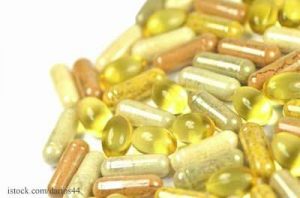The FDA says that if you buy imported products that are marked as “dietary supplements” and nonprescription drug products from flea markets, swap meets, online, or from ethnic or international stores, you could be harming your health. Health scammers often target people who like shopping at nontraditional outlets, especially those who have limited English proficiency.
 Cariny Nunez, M.P.H., a public health advisory in the Office of Minority Health at the FDA says, “these scammers know that ethnic groups who may not speak or read English well, or who hold certain cultural beliefs, can be easy targets.” Some groups, such as Native Americans, Latinos, and Asians have a long tradition of using herbal or “natural” remedies. But “natural” does not mean “safe”.
Cariny Nunez, M.P.H., a public health advisory in the Office of Minority Health at the FDA says, “these scammers know that ethnic groups who may not speak or read English well, or who hold certain cultural beliefs, can be easy targets.” Some groups, such as Native Americans, Latinos, and Asians have a long tradition of using herbal or “natural” remedies. But “natural” does not mean “safe”.
Many “natural” products, such as arsenic and lead, are toxic. In addition, just because a product has natural claims on its label or in advertising doesn’t mean it is free of hidden drugs. And these products can be contaminated with harmful chemicals or drugs that are not listed on the label.
For example,Food Poisoning Bulletin has told you about many recalls of dietary supplements for weight loss that contain sibutramine, a formerly FDA-approved drug that was removed from the market because it increased the risk of heart problems and strokes. And even though an ingredient that is used in a product is FDA approved, it could be added in unsafe amounts or dosages that could cause serious illness.
Other scammers may illegally sell imported antibiotics without a prescription and no doctor’s guidance. That can lead to misuse and overuse, which is a huge issue in the growing crisis of antibiotic resistance bacteria. Some products marketed as dietary supplements look like antibiotics, but do not contain any antibiotics.
Nunez continued, “It’s not surprising that people are more comfortable with familiar products that claim to come from their home country or are labeled and marketed in the consumers’ native language, whether they buy them at a U.S. market or get them from friends and family who have brought them from home.” But familiar does not mean safe. Or effective.
And there’s more. Products can have identifying labels stating “made in the USA” but they are not made in this country. This claim can be seen as an assurance of safety, but it doesn’t mean anything. The law doesn’t require companies who make dietary supplements to get FDA approval before they market and sell them to consumers.
Dietary supplements are not drugs. They are not substitutes for the drugs a doctor prescribes for you. And some of these supplements can interact with prescription drugs you are taking, causing some potentially serious or even deadly side effects.
To protect yourself from fraudulent dietary supplements and nonprescription drug products, look out for the following claims. They may include one product that claims to cure a wide range of diseases; personal testimonials, which are not proof of efficacy; claims of quick fixes; claims of “all natural;” claims of “miracle cures:” and claims of “FDA-approved” on the label. Those terms are red flags for fraudulent products.
If you do take a dietary supplement and have a bad reaction to it, tell the FDA about it to help protect others. You can call the Consumer Complaint Coordinator in your state, or fill out an online report. Go to the FDA’s Medwatch Adverse Event Reporting form and fill out the information.




